The Ultimate Guide to Church Management Software (ChMS)
Home » The Ultimate Guide to Church Management Software
In this article, we will provide you with a comprehensive information and insights into the various aspects of church management software (ChMS), guiding you in making an informed decision when acquiring one.
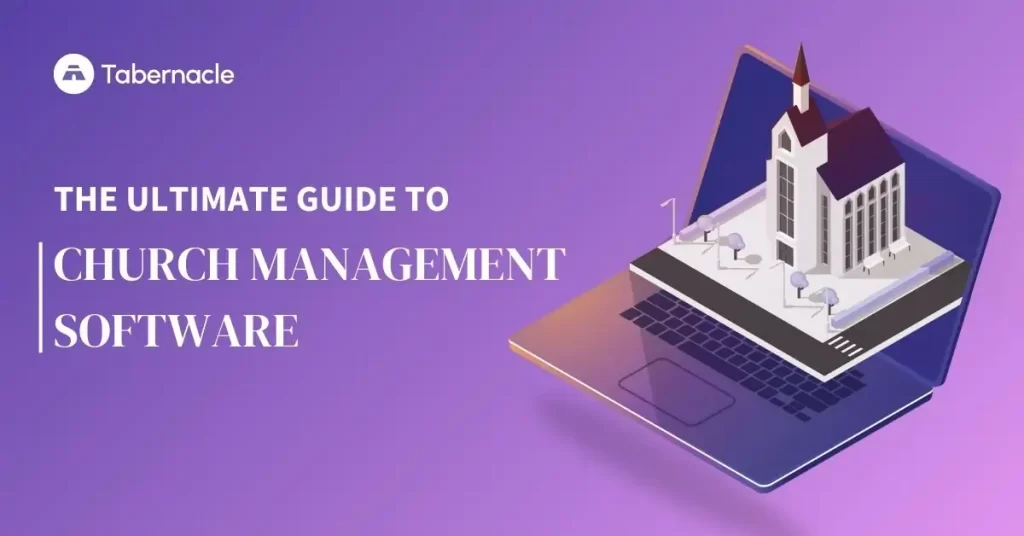
Table of Contents
Introduction
Many people might think that Church is all about the Sunday Sermons and the programs. However, churches, like corporations, manage money and people. One of their primary goals is to minister to their congregation and communities. As a church grows and its ministry expands, it becomes essential to have a system in place to keep track of visitors, members, volunteers, events, and finances.
Managing these tasks can be quite complex without established procedures and programs. That’s why it’s crucial for churches to have dedicated administrators to handle the various tasks involved in ministry work.
With such a diverse range of people, finances, and activities to manage, church management software (ChMS) becomes an invaluable tool. It enhances efficiency, allows more time for ministry, and eases the burden on church administrators.
Importance and Relevance in Modern Church Operations
For a long time, religious organizations were slow to embrace technology. However, the Covid-19 pandemic changed that narrative, and churches were no exception. Churches worldwide realized the necessity of technology to thrive in the new world.
They needed tools to livestream services, receive tithes and donations online, communicate with members through various channels, and manage their operations with online solutions.
A blog from the Siburt Institute for Church Ministry, shares what churches have been doing to continue ministering to their congregants.
Many churches’ operational processes remain chaotic and paper-based. Some have started digitizing member information, such as baptismal and marriage records and contact details, but managing this data with spreadsheets has proven insufficient.
Therefore, churches need a software application to modernize their operations. Today, it’s hard to imagine any organization operating without proper software.
A church’s work extends beyond Sunday sermons and events; numerous back-office tasks require specialized tools to improve efficiency, enhance transparency, and increase accountability, all to fulfill the church’s mission.
"Why Software Is Eating the World" - Marc Andreessen
As we talk about church management software, it’s worth recalling Marc Andreessen’s world-famous essay, “Why Software Is Eating the World.”
About a decade ago, he wrote, “Six decades into the computer revolution, four decades since the invention of the microprocessor, and two decades into the rise of the modern Internet, all of the technology required to transform industries through software finally works and can be widely delivered at global scale.”
Today, in 2024, technology has revolutionized every industry, from education to health, automotive to entertainment, and churches are no exception.
In this article, we will provide you with comprehensive information and insights into the various aspects of church management software (ChMS), guiding you in making an informed decision when acquiring one.
What is Church Management Software (ChMS)?
Church Management Software (ChMS) is a specialized application designed to meet the unique needs of churches. It assists pastors and their teams with daily operations such as database management, financial planning, donation and expense tracking, event management, communication with congregants, and more.
It is a centralized system integrated with various church management tools solely aimed at empowering the church for various administrative tasks.
Basic Features of Church Management Software (ChMS)
1. People/ Member Management
Managing church members is crucial, but handling diverse records like contact information, baptismal and marriage records, addresses, family details, and transfer records can be cumbersome across registers or spreadsheets.
The Member Management feature consolidates all this information into one accessible location. Administrators can easily retrieve individual records with a simple search by name or phone number. Advanced filters allow sorting by gender, age group, or location.
2. Tithes & Donation Tracking
Many churchgoers still donate in cash or check envelopes, necessitating transparent and accountable record-keeping and acknowledgment.
Church Management Software (ChMS) includes Donation Tracking to accurately record giver information and generate customized receipts, printable or downloadable as PDFs. It also features a search function for quick donor retrieval and edits.
3. Expense Tracking
Managing church expenses and fund allocations among different departments is challenging manually, prone to errors and time-consuming.
The software’s Expense Tracking module allows secretaries or accountants to record expenses effortlessly and track them via a centralized dashboard.
4. Financial Planning/Budgeting
Each year, churches allocate funds across various departments, requiring effective budgeting tools.
Church Management Software (ChMS) facilitates creating annual budgets and allocating funds accordingly, ensuring efficient fund management and immediate insights into expenditure.
5. Bulk SMS/Email
Effective communication with members, individually or en masse, is pivotal.
The Bulk SMS feature enables quick message dissemination, whether acknowledging donations or notifying about upcoming events.
6. Group Management
Churches organize various groups like men’s ministry, women, youth, seniors, and volunteers.
Group Management features facilitate creating and managing these groups, enhancing information accessibility and outreach efforts.
7. Events & Church Calendar Management
Coordinating church events across different departments can be complex. The Event Management feature allows administrators to create church calendars categorized by department (general, youth, women, etc.), ensuring centralized event tracking and attendance management.
8. Online Giving
Facilitating online donations is increasingly essential as cashless transactions become more prevalent.
Many Church Management Software (ChMS) platforms integrate payment gateways into church websites and apps, significantly boosting church income by offering convenient online giving options.
9. Reports Generation
Generating customized reports from member data, income, and expenses is crucial for financial oversight and audit readiness.
The software automates report generation, providing detailed financial reports for audits and regular updates on church progress and member demographics.
10. Admin Access Control
-Modern Church Management Software supports multiple administrators, streamlining operations and enhancing data security.
It allows adding and managing multiple administrators with defined permissions, ensuring appropriate access levels and safeguarding sensitive information.
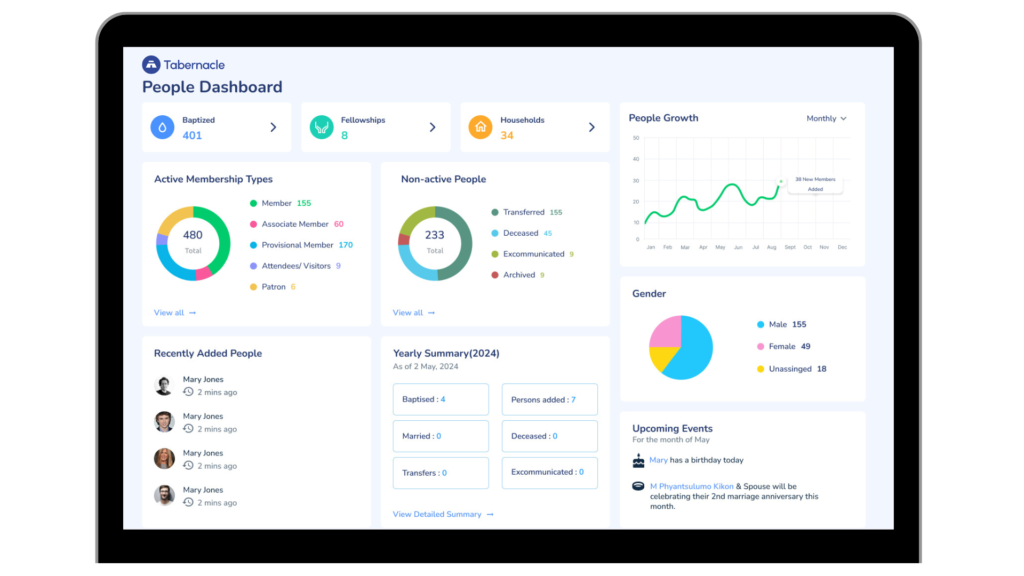
Types of Church Management Software (ChMS)
Basically we can distinguish two types of Church Management Software (ChMS)
1. On-premise Church Management Software (ChMS)
On-premise church management software (ChMS) is installed and runs on servers or computers physically located within the church’s premises. The church is responsible for maintaining the hardware and software infrastructure.
Pros:
- Full control over data, hardware, and software configurations.
- Customization options tailored to specific needs.
- Enhanced data privacy due to local storage.
- The system can be accessed without an internet connection.
- Less concern about internet outages affecting software accessibility.
- Easier to comply with specific regulatory requirements regarding data storage and handling.
Cons:
- High initial investment in hardware and software licenses.
- Ongoing maintenance and upgrade costs.
- Requires IT staff or expertise to manage and maintain the system.
- Responsibility for backups, security, and updates falls on the church.
- Limited scalability as growth may require additional hardware and infrastructure.
- More complex to upgrade and expand the system.
- Limited remote access unless additional configurations (like VPNs) are implemented.
- Less flexibility for users needing access outside the church premises.
2. Cloud-based Church Management Software (ChMS)
Cloud-based church management software (ChMS) is hosted on remote servers managed by a third-party service provider. Users access the software through the internet.
Pros:
- Lower initial costs as there is no need for extensive hardware.
- Subscription-based pricing, making budgeting predictable.
- The service provider handles updates, maintenance, and security.
- Regular backups are managed by the provider.
- Easily scalable to accommodate growing needs.
- Can add users and features without significant infrastructure changes.
- Accessible from anywhere with an internet connection.
- Mobile and remote access capabilities enhance flexibility.
- Easier to integrate with other cloud-based services and applications.
- Often provides seamless updates and new features.
Cons:
- Requires a stable internet connection for access.
- Less control over software updates and configurations.
- Customization options may be limited compared to on-premise solutions.
- Potential for price increases by the service provider.
Choosing between on-premise and cloud-based church management software (ChMS) depends on the church’s specific needs, resources, and priorities.
- On-premise solutions offer greater control and security but come with higher costs and maintenance responsibilities.
- Cloud-based solutions provide cost-effectiveness, scalability, and accessibility but require a reliable internet connection and involve entrusting data to a third-party provider.
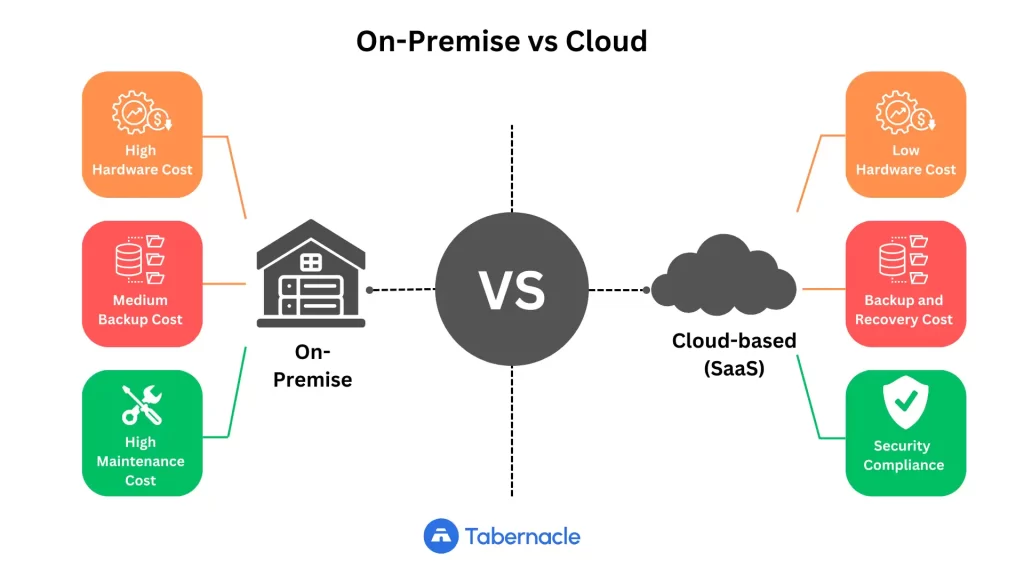
Common misconceptions and clarifications
Monitoring attendance becomes more accurate and efficient, providing insights for strategic planning and member engagement initiatives.
Misconception 1: Church Management Software (ChMS) is Only for Large Churches
- Clarification: Church management software (ChMS) can benefit churches of all sizes. Small and medium-sized churches can also leverage ChMS to streamline administrative tasks, enhance communication, and manage member data efficiently.
Misconception 2: Church Management Software (ChMS) is Too Expensive
- Clarification: While some solutions can be costly, there are various pricing models, including affordable options and subscription-based services. Additionally, the long-term savings from improved efficiency and reduced administrative workload often outweigh the initial investment.
Misconception 3: Church Management Software (ChMS) is Complicated to Use
- Clarification: Modern ChMS platforms are designed with user-friendliness in mind, featuring intuitive interfaces and comprehensive support resources. Training and customer support are typically available to help staff and volunteers get up to speed.
Misconception 4: Our Church Doesn’t Need Church Management Software (ChMS)
- Clarification: Even if a church is currently managing without dedicated software, ChMS can greatly enhance organization and communication, especially as the church grows. It helps in managing member data, event planning, volunteer coordination, and financial tracking more effectively.
Misconception 5: Church Management Software (ChMS) Replaces Personal Interaction
- Clarification: ChMS is a tool to facilitate administrative tasks and communication, not to replace personal interactions. It allows church staff to spend less time on paperwork and more time engaging with members and the community.
Misconception 6: Church Management Software (ChMS) is Only for Administration
- Clarification: Besides administrative tasks, ChMS supports various church functions like event management, small group coordination, volunteer scheduling, and even spiritual growth tracking. It’s a comprehensive tool for overall church management.
Misconception 7: Cloud-Based ChMS (ChMS) is Not Secure
- Clarification: Reputable cloud-based ChMS providers implement robust security measures, including data encryption, regular security audits, and compliance with data protection regulations. These measures often exceed what many churches can implement on their own.
Misconception 8: On-Premise Church Management Software (ChMS) is More Reliable than Cloud-Based Solutions
- Clarification: On-premise solutions depend on local infrastructure, which can be susceptible to hardware failures and require regular maintenance. Cloud-based solutions benefit from high availability, automatic updates, and professional management by the provider.
Misconception 9: Data Migration to New ChMS is Too Difficult
- Clarification: While data migration can be challenging, many ChMS providers offer tools and support to make the process smoother. They often assist with data import, ensuring that important information is transferred accurately and securely.
Misconception 10: All Church Management Software is the Same
- Clarification: ChMS solutions vary widely in terms of features, pricing, and target audience. It’s important to evaluate different options based on the specific needs and goals of the church, ensuring the chosen software aligns with its requirements.
Benefits of Church Management Software (ChMS)
As churches grow and their needs diversify, traditional methods of managing operations—such as paper records and manual calculations—become inefficient and cumbersome.
This is where Church Management Software (ChMS) steps in. It bridges the gap between tradition and modern efficiency while enhancing transparency and accountability.
1. Time-Saving and Increased Operational Efficiency
Gone are the days when phone numbers were noted down in a phone diary. Today, we have sophisticated phones where a quick search reveals the needed contact details.
Similarly, for churches, Church Management Software (ChMS) provides advanced search options with filters. This allows you to quickly retrieve member information with just a few clicks.
An example below is how Pastor Vistato of Union Baptist Church uses the advanced search filter of Tabernacle Church Management Software.
Church administrators can effortlessly filter people based on various demographics. This saves time and ensures robust and efficient operations.
It not only ensures accuracy but also empowers churches to better serve their communities. Member data, such as contact details, attendance records, and volunteer roles, are centralized in a secure database that is easy to access and update.
Imagine trying to locate all members who attended a particular event or all families with children in a specific age group.
With traditional methods, this would involve sifting through piles of paper records or manually searching through spreadsheets.
A Church Management Software (ChMS) simplifies these tasks with advanced search filters that can pinpoint the exact information needed in seconds. This efficiency allows church staff to focus on more mission-critical tasks instead of getting bogged down with administrative work.
2.Financial Transparency and Accountability
Managing church finances involves tracking donations, managing budgets, and generating financial reports.
Church management software (ChMS) simplifies this complex process. It provides real-time insights into resource usage, tracking everything from physical assets to financial resources.
This comprehensive oversight helps churches make informed decisions, maximize resources, and avoid waste. Additionally, the software’s ability to generate detailed financial statements enhances transparency and accountability, aligning with the biblical call for good stewardship.
Churches often need to present detailed financial reports to their congregation and governing bodies.
With ChMS, generating these reports becomes straightforward. Detailed financial statements can be produced at the click of a button. These reports showcase income, expenses, and resource allocation in a clear and understandable format.
This level of transparency builds trust within the congregation and ensures that all financial activities are conducted with integrity.
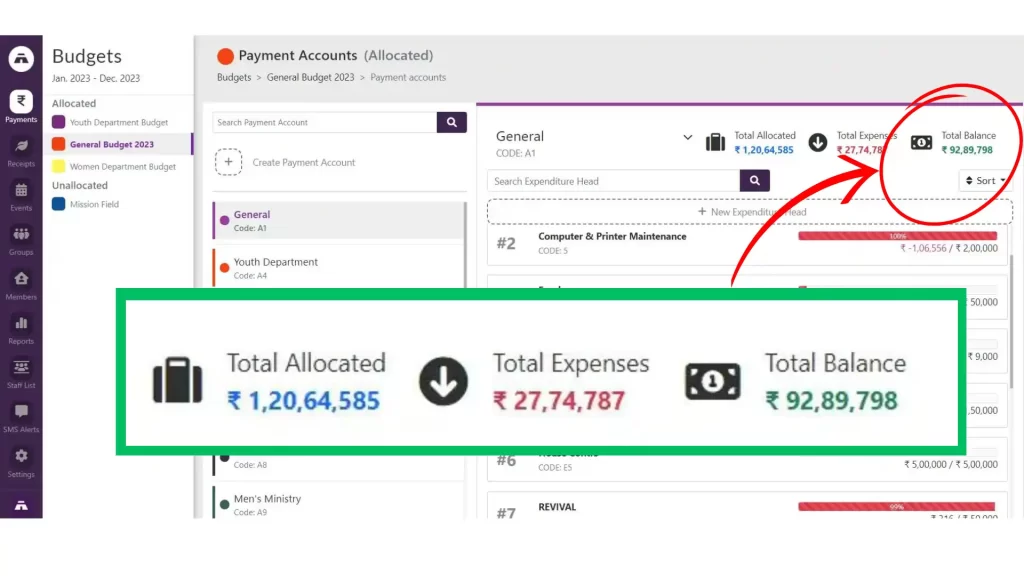
3. Enhanced Member Communication
One of the primary benefits of church management software (ChMS) is its ability to facilitate communication between church leaders and members.
With features like text messaging, churches can easily send out announcements, event invitations, and important updates to their congregation in real-time.
This streamlined communication ensures that all members are informed and engaged. It fosters a stronger church community.
The donation acknowledgements can also be done through Bulk SMS features where customized messages could be sent to all donors with a click of a button.
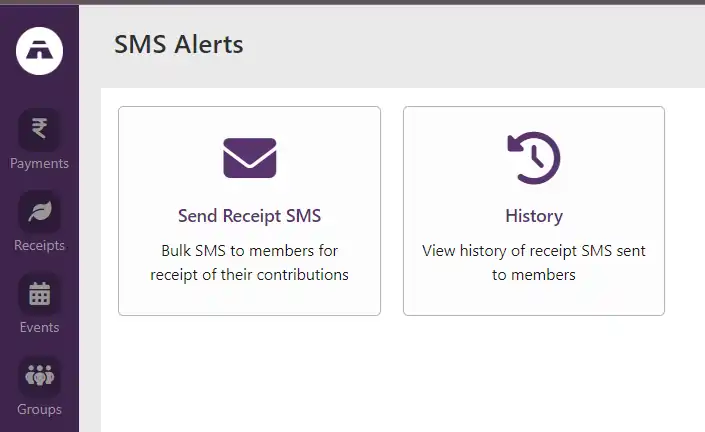
4. Efficient Reporting and Analytics
Church management software (ChMS) comes with powerful reporting and analytics features. These features provide insights into various aspects of church operations.
During financial audits it becomes extremely easy to prepare financial reports of expenses or income. With just a few clicks you can generate powerful and customized reports as per your church department and date range filter.
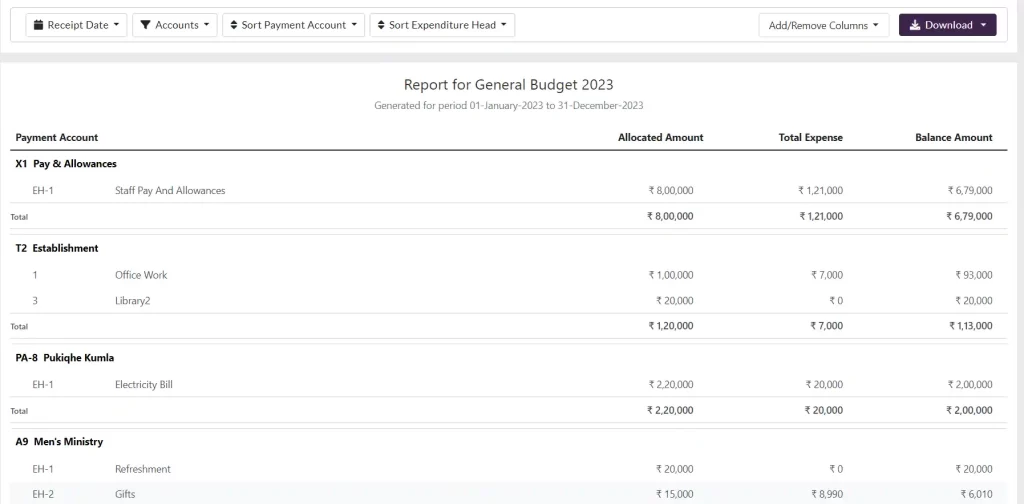

How to choose the right Church Management Software (ChMS)
Selecting the right Church Management Software (ChMS) is a crucial decision for any church. The right software can streamline operations, enhance communication, and improve overall efficiency.
However, with numerous options available, making the right choice can be challenging.
This guide will help you navigate the process of selecting the best ChMS for your church by focusing on key factors:
- Assessing church needs and size,
- Comparing different software options
- Reading reviews and testimonials
- Evaluating customer support and training
- Considering budget and pricing plans.
Assessing Church Needs and Size
The first step in choosing the right ChMS is to assess your church’s specific needs and size. Different churches have different requirements based on their size, structure, and activities.
1. Identify Key Functions
Determine the core functions that are essential for your church. This might include member management, communication tools, event scheduling, volunteer coordination, and financial management. Prioritize these functions based on their importance to your church operations.
2. Consider Church Size
The size of your congregation will significantly impact your ChMS needs. Smaller churches might require a simpler system with basic features, while larger churches may need a more comprehensive solution that can handle complex tasks and a larger volume of data.
3. Future Growth
Consider your church’s growth potential. Choose a software that can scale with your church’s expansion, ensuring it remains effective as your congregation grows.
4. Unique Requirements
Take into account any unique needs specific to your church. This could include language support for diverse congregations, specific reporting requirements, or integration with other tools your church uses.
Comparing Different Software Options
Once you have a clear understanding of your church’s needs, the next step is to compare different ChMS options available in the market.
1. Feature Comparison
Create a checklist of the features you need and compare how different ChMS solutions match up. Look for key functionalities such as membership management, communication tools, financial tracking, event management, and volunteer coordination.
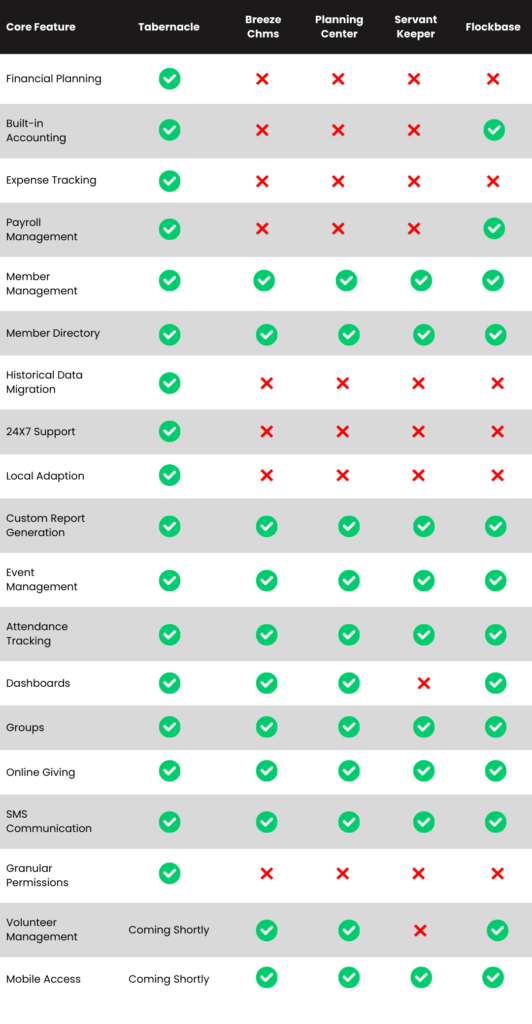
2. Ease of Use
User-friendliness is crucial. Ensure that the software is intuitive and easy to navigate for both tech-savvy and non-tech-savvy users. A complicated system can lead to frustration and underutilization.
3. Integration Capabilities
Check if the ChMS integrates with other software your church is already using, such as accounting software, email marketing tools, and social media platforms. Seamless integration can save time and reduce data entry errors.
4. Mobile Access
With increasing reliance on mobile devices, ensure the ChMS offers mobile access or a dedicated app. This allows church staff and members to access essential features on the go.
5. Security and Data Privacy
Evaluate the security measures implemented by the ChMS provider. Ensure that the software offers encrypted databases, secure login credentials, and regular data backups to protect sensitive member information.
Reading Reviews and Testimonials
Reviews and testimonials from other churches can provide valuable insights into the performance and reliability of different ChMS options.
1. Online Reviews
Check online review platforms and forums where churches discuss their experiences with various ChMS solutions. Look for consistent positive feedback and note any recurring issues or complaints.
2. Testimonials
Visit the websites of ChMS providers and read testimonials from other churches. These testimonials can highlight specific benefits and features that other churches have found useful.
3. Case Studies
Some ChMS providers offer detailed case studies showcasing how their software has benefited other churches. These case studies can provide a deeper understanding of how the software performs in real-life scenarios.
For example, Tabernacle has a dedicated page for case studies of their most successful customers.
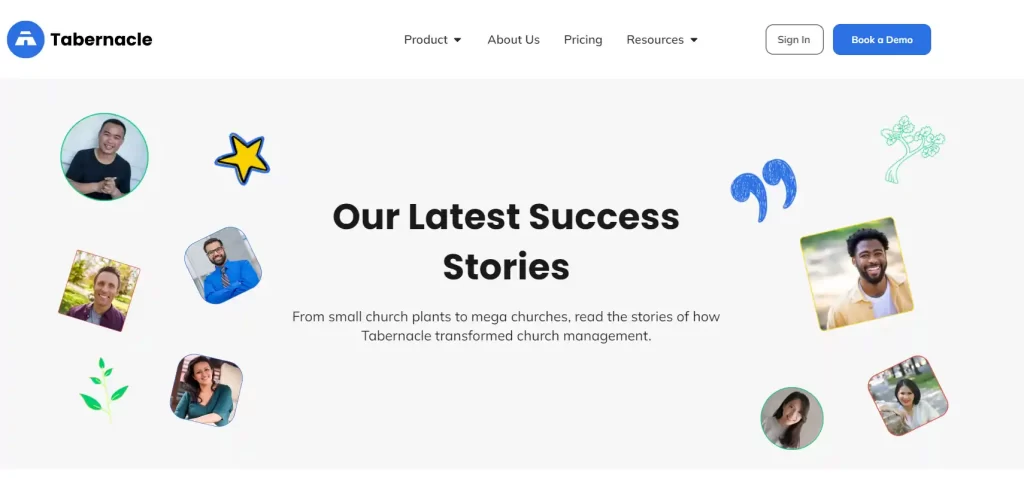
4. References
Don’t hesitate to ask ChMS providers for references. Speaking directly with other churches that use the software can give you a firsthand account of their experience and satisfaction.
Evaluating Customer Support and Training
Effective customer support and training are essential for successfully implementing and utilizing ChMS.
1. Support Channels
Check the availability of customer support channels such as phone, email, live chat, and online ticketing. Ensure that support is easily accessible and responsive.
2. Training Resources
Evaluate the training resources offered by the ChMS provider. This might include user manuals, video tutorials, webinars, and on-site training sessions. Comprehensive training ensures that your church staff can effectively use the software.
3. Onboarding Assistance
Some ChMS providers offer onboarding assistance to help you set up the software and migrate existing data. This can be particularly valuable if you are transitioning from a different system.
4. Community and Forums
A strong user community and active forums can be beneficial. They provide a platform for users to share tips, troubleshoot issues, and learn from each other’s experiences.
5. Customer Support Quality
Assess the quality of customer support by reaching out with a few questions during your evaluation phase. Prompt and helpful responses indicate a reliable support team.
Considering Budget and Pricing Plans
Finally, consider your church’s budget and the pricing plans of different ChMS solutions.
1. Total Cost of Ownership
Calculate the total cost of ownership, including subscription fees, setup costs, training expenses, and any additional charges for premium features. Ensure that the chosen ChMS fits within your church’s budget.
2. Pricing Models
Compare different pricing models such as subscription-based, one-time purchase, or pay-as-you-go plans. Subscription-based models often include regular updates and support, while one-time purchases might have lower long-term costs but limited support.
3. Free Trials and Demos
Take advantage of free trials and demos offered by ChMS providers. This allows you to test the software’s features and usability before committing to a purchase.
4. Scalability of Pricing
Ensure that the pricing plan is scalable and can accommodate your church’s growth. Some ChMS solutions offer tiered pricing based on the number of members or features, providing flexibility as your needs change.
5. Hidden Costs
Be aware of any hidden costs such as additional charges for customer support, data storage, or feature upgrades. Clarify all costs upfront to avoid surprises later on.
Making the Final Decision
After thorough research and evaluation, it’s time to make the final decision. Here are a few tips to help you choose the best ChMS for your church.
1. Involve Key Stakeholders
Involve key stakeholders, including church leaders, administrative staff, and volunteers, in the decision-making process. Their input and feedback can provide valuable perspectives and ensure buy-in from those who will be using the software.
2. Vendor Partnership
Consider the ChMS provider as a long-term partner. Choose a provider that demonstrates a commitment to ongoing development, customer support, and innovation.
3. Alignment with Church Goals
Ensure that the chosen ChMS aligns with your church’s mission and goals. The software should support your church’s vision and help achieve its objectives effectively.
Implementation and Best Practices for Church Management Software
Implementing Church Management Software (ChMS) can revolutionize your church’s operations. However, a successful implementation requires careful planning, training, and execution.
This guide outlines the key steps for successful implementation, training staff and volunteers, data migration tips, setting up workflows and automation, and addressing common challenges with solutions.
Steps for Successful Implementation
1. Project Planning
Begin by forming an implementation team comprising key stakeholders, including church leaders, administrative staff, and IT personnel. Define the scope, timeline, and goals of the implementation project.
2. Requirements Gathering
Conduct a thorough analysis of your church’s needs and document specific requirements. This includes identifying essential features, desired outcomes, and any potential challenges.
3. Vendor Collaboration
Work closely with your ChMS vendor. Schedule regular meetings to discuss the implementation plan, customization needs, and any technical requirements.
Data Migration Tips
1. Data Assessment
Begin by assessing the quality and relevance of existing data. Identify which data needs to be migrated and ensure it is clean, accurate, and up-to-date.
2. Data Mapping
Map out how existing data will be transferred to the new ChMS. This involves identifying the corresponding fields and formats in the new system.
3. Backup Data
Before migration, ensure that all data is backed up securely. This provides a safety net in case of any issues during the migration process.
4. Data Validation
After migration, validate the data in the new system. Ensure that all records are accurately transferred and that no data is lost or corrupted.
Common Challenges and Solutions
1. Resistance to Change
One of the common challenges is resistance from staff or volunteers who are accustomed to traditional methods.
Address this by communicating the benefits of the new system and involving them in the implementation process.
2. Technical Issues
Technical glitches can occur during implementation. Have a dedicated IT team or vendor support to address these issues promptly and minimize disruptions.
3. Data Migration Errors
Data migration can be complex, and errors may occur. Mitigate this risk by performing thorough data validation and having a backup plan in place.
4. Insufficient Training
Lack of proper training can lead to underutilization of the ChMS. Ensure comprehensive training programs are in place and provide ongoing support to users.
5. Budget Constraints
Implementing a ChMS can be costly. Plan your budget carefully and consider the long-term benefits of the system. Explore different pricing models and choose one that fits your financial constraints.
Impact of Church Management Software (ChMS) Case Studies
Develop user-friendly interfaces and search tools to facilitate access to digitized church records. Provide online access through church websites or archival platforms, and implement training and support for users.
Case Study 1: How Tabernacle Streamlined Operations at Life Transformation Church
Life Transformation Church in West Bengal, where Anurag serves as the diligent church accountant, encountered major hurdles with manual church tasks.
Handling the records for over 200 members, maintaining ledgers, and coordinating events had become overwhelming. Furthermore, generating donation receipts and accurately managing finances was a constant issue.
Before implementing church management software, Anurag and his team found it difficult to manage the heavy administrative load.
Without automation, financial tracking was often inaccurate, and administrative duties took up a significant amount of time. The labor-intensive nature of these tasks meant that errors were common, leading to financial discrepancies and inefficient event coordination.
The introduction of Tabernacle marked a significant turning point for Life Transformation Church. The software drastically reduced the administrative workload by automating routine tasks and providing a centralized system for all church operations.
With Tabernacle, Anurag could now manage financial records with greater accuracy, issue donation slips effortlessly, and streamline event planning. This not only saved time but also minimized errors, allowing the church staff to focus more on community engagement and spiritual growth.
Watch his Testimonial Interview
Case Study 2: How Tabernacle Made Church Management Seamless & Affordable at Spirit of Faith
Spirit of Faith Church in Nagaland, home to over 600 members, faced considerable difficulties in efficient management.
Moasen, the church secretary, dealt with communication problems and the rigidness of their former church management software, Breeze. Moreover, Breeze’s incapability to record transactions in the local currency further complicated financial management, making it cumbersome and less precise.
Before adopting Tabernacle, Spirit of Faith struggled with these limitations. Communication with Breeze’s support team was often ineffective, leading to prolonged issues and frustration.
The inability to record transactions in the local currency resulted in inaccurate financial records, further complicating budget management and financial reporting. Additionally, the high costs and limited flexibility of Breeze meant that the church was paying a premium for software that did not fully meet their needs.
The introduction of Tabernacle marked a pivotal moment for Spirit of Faith Church. Tabernacle’s adaptability to local church needs made a notable difference.
The software’s affordability and comprehensive features addressed the specific requirements of Spirit of Faith Church, making it an ideal solution.
With Tabernacle, Moasen found that communication with the support team was much more effective, and the software’s flexibility allowed for seamless integration with the church’s financial practices, including transaction recording in the local currency.
Watch her Testimonial Interview
Case Study 4: How Tabernacle Transformed Union Baptist Church's Member Management
Union Baptist Church in Nagaland, under Pastor Visato’s leadership, serves more than 1,200 members. Before Tabernacle, the church faced challenges in managing member data, conducting targeted outreach, and lacked effective tools for event planning and member engagement.
Managing such a large congregation manually was a daunting task. The church struggled to maintain accurate member records and found it difficult to conduct targeted outreach based on member data. Event planning was also cumbersome without proper tools, leading to inefficiencies and lower engagement rates.
Tabernacle provided Union Baptist Church with comprehensive member search and filtering features, simplifying the management of their large congregation. The software also streamlined event planning and enhanced member engagement, addressing the church’s primary challenges effectively.
With Tabernacle, Pastor Visato and his team could efficiently manage member data, plan events more effectively, and engage with the congregation in a more meaningful way. This transformation not only improved operational efficiency but also strengthened the church’s community bonds.
Watch his Testimonial Interview
Future Trends in Church Management Software (ChMS)
Church management software (ChMS) has come a long way from its humble beginnings. As technology continues to evolve, so too do the tools and systems that churches use to manage their operations. Here’s a look at the emerging technologies and innovations in church management software, how it’s integrating with other church tools and platforms, and some predictions for the next 5-10 years.
Emerging Technologies and Innovations
1. Artificial Intelligence (AI) and Machine Learning
AI and machine learning are becoming integral parts of many software solutions, and ChMS is no exception. AI can help churches by automating routine tasks, providing insights through data analysis, and enhancing member engagement. For instance, AI-driven chatbots can handle common queries from church members, freeing up staff time for more complex issues. Machine learning algorithms can analyze attendance patterns, donation trends, and volunteer participation to provide actionable insights that help church leaders make informed decisions.
2. Cloud Computing
Cloud-based ChMS solutions are becoming the norm due to their accessibility, scalability, and cost-effectiveness. These platforms allow church staff and volunteers to access information and manage tasks from anywhere, making it easier to coordinate activities and keep everyone on the same page. The cloud also ensures data security and disaster recovery, which is crucial for maintaining the integrity of church records.
3. Virtual and Augmented Reality (VR and AR)
While still in the early stages of adoption, VR and AR hold promise for enhancing the church experience. Virtual reality can be used to create immersive worship experiences for remote attendees, while augmented reality can enhance in-person services with interactive elements. These technologies can also be used for virtual tours of church facilities, training sessions, and educational programs.
4. Blockchain Technology
Blockchain technology offers a new level of transparency and security for church finances. It can be used to create a transparent ledger of donations and expenditures, ensuring that all financial transactions are traceable and tamper-proof. This can help build trust among congregation members and ensure that funds are used appropriately.
Integration with Other Church Tools and Platforms
1. Communication Platforms:
Integration with communication platforms like email, SMS, and social media is vital for effective church management. Modern ChMS solutions offer seamless integration with these tools, allowing churches to communicate with their members through their preferred channels. Automated notifications and reminders can help keep members informed about upcoming events, volunteer opportunities, and important announcements.
2. Event Management Tools
Churches often host a variety of events, from worship services and bible studies to community outreach programs and fundraising events. Integrating ChMS with event management tools streamlines the planning and execution of these events. Features like online registration, ticketing, and volunteer coordination make it easier to manage events and ensure their success.
3. Online Giving Platforms
Online giving is a critical component of modern church management. ChMS solutions that integrate with online giving platforms enable members to make donations quickly and securely. These integrations also provide valuable data on giving patterns, which can be used to tailor fundraising campaigns and improve financial planning.
4. Learning Management Systems (LMS)
For churches that offer educational programs and courses, integration with LMS platforms is essential. These integrations allow churches to manage course content, track member progress, and provide online learning opportunities. This is particularly important for churches that want to expand their reach and provide remote learning options.
Predictions for the Next 5-10 Years
1. Increased Personalization
As AI and machine learning continue to evolve, we can expect ChMS solutions to offer more personalized experiences for church members. These technologies will enable churches to tailor their communications, programs, and services to meet the unique needs and preferences of each member. Personalized recommendations for events, volunteer opportunities, and educational content will help increase member engagement and satisfaction.
2. Greater Emphasis on Data Privacy and Security
With the increasing amount of data being collected by ChMS solutions, data privacy and security will become even more critical. Churches will need to adopt robust security measures to protect sensitive information and comply with data protection regulations. Blockchain technology and advanced encryption methods will play a significant role in ensuring data integrity and security.
3. Enhanced Remote Engagement
The COVID-19 pandemic has accelerated the adoption of remote engagement tools, and this trend is likely to continue. Churches will increasingly rely on live streaming, virtual events, and online communities to engage with their members. ChMS solutions will need to provide seamless integration with these tools to support hybrid models of worship and community building.
4. Greater Focus on Community Building
As society becomes more digital, there will be a greater emphasis on building and nurturing communities within the church. ChMS solutions will evolve to include features that facilitate small group activities, mentorship programs, and peer-to-peer support networks. These tools will help foster a sense of belonging and strengthen the church community.
5. Sustainability and Green Practices
Churches are becoming more aware of their environmental impact and are looking for ways to operate more sustainably. ChMS solutions will incorporate features that support green practices, such as paperless administration, energy-efficient operations, and sustainable event planning. This will help churches reduce their carbon footprint and promote environmental stewardship.
6. Broader Adoption of Multi-Site Management
As more churches expand to multiple locations, the demand for multi-site management capabilities will grow. ChMS solutions will need to offer robust features that allow churches to manage multiple campuses seamlessly. This includes centralized administration, consistent member experiences, and coordinated events and programs across all sites.
FAQs
What exactly is church management software?
Church management software (ChMS) is a specialized application designed to help churches manage their daily operations. This includes member data management, attendance tracking, event planning, donation tracking, financial reporting, and communication with members. The goal is to streamline administrative tasks, improve efficiency, and enhance engagement within the church community.
Why does my church need church management software?
Church management software offers numerous benefits, including:
- Efficiency: Automates routine tasks, saving time for staff and volunteers.
- Accuracy: Reduces errors in data entry and financial tracking.
- Engagement: Enhances communication and engagement with members through personalized messages and updates.
- Organization: Provides a centralized system for managing member data, events, and donations.
- Insights: Offers data analytics and reporting tools to help church leaders make informed decisions.
How does church management software manage and protect member data?
ChMS provides a secure and centralized database for storing member information. This data can include contact details, attendance records, donation history, and involvement in church activities. Most ChMS solutions offer robust security features, such as encryption, access controls, and regular backups, to protect sensitive information from unauthorized access and data breaches.
How can church management software enhance communication within our church?
Church management software facilitates communication through various channels, including email, SMS, and social media. It allows for personalized messaging, automated notifications, and targeted communications based on member preferences and involvement. This ensures that members receive relevant and timely information, improving overall engagement and connectivity within the church community.
Is church management software user-friendly?
Most ChMS solutions are designed with user-friendliness in mind. They often feature intuitive interfaces, drag-and-drop functionality, and comprehensive support resources, such as tutorials and customer support. This makes it easy for staff and volunteers to learn and use the software, even if they have limited technical skills.
How can church management software help with event planning and management?
ChMS offers tools for planning, organizing, and managing church events. Features typically include online event registration, ticketing, volunteer coordination, and communication with attendees. This streamlines the entire event management process, ensuring that events run smoothly and efficiently, from planning to execution.
Does church management software support online donations and track giving?
Yes, many ChMS solutions integrate with online giving platforms, allowing members to make donations quickly and securely. The software tracks all donations, providing detailed reports on giving patterns and trends. This helps churches manage their finances more effectively and plan for future financial needs.
How secure is church management software?
Security is a top priority for ChMS providers. Most solutions use advanced security measures, such as encryption, secure socket layer (SSL) certificates, and regular security audits, to protect sensitive data. Additionally, access controls ensure that only authorized personnel can access certain information, further safeguarding member data and financial records.
Can church management software be customized to meet our specific needs?
Most ChMS solutions offer a high degree of customization. Churches can tailor the software to their specific needs by configuring settings, creating custom fields, and developing unique workflows. This ensures that the software meets the unique requirements of each church, regardless of its size or denomination.
What is the cost of church management software?
The cost of ChMS can vary widely based on the features and the size of the church. Some solutions offer tiered pricing plans, where smaller churches can opt for basic plans with essential features, while larger churches can choose more comprehensive plans. Additionally, many providers offer free trials or demos, allowing churches to test the software before committing to a purchase.
Is church management software beneficial for small churches?
Absolutely. While larger churches may have more complex needs, small churches can also benefit significantly from ChMS. It helps streamline administrative tasks, improves data accuracy, enhances communication, and provides valuable insights for decision-making. Many ChMS providers offer affordable plans tailored to the needs of smaller congregations, ensuring that all churches can take advantage of these tools.
Our Latest Insights on Church Management & Technology.
Get Your Updates Instantly.

Understanding Legal and Tax Compliances for Churches
Churches in Northeast India are turning to digital tools, from livestreams to apps, to strengthen community connections, engage young congregants and improve church administration. This shift is transforming worship, outreach, and administration in ways that were once unimaginable.
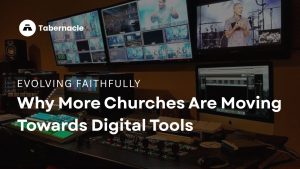
Why more churches are moving towards Digital tools
Churches in Northeast India are turning to digital tools, from livestreams to apps, to strengthen community connections, engage young congregants and improve church administration. This shift is transforming worship, outreach, and administration in ways that were once unimaginable.

Sermon Ideas for Children’s Day
In catering to the youth of this generation, the church must bear in mind that this generation possesses information at their fingertips in unprecedented ways.
Looking for a Software to manage
your church?
We'd love to have you try our software!